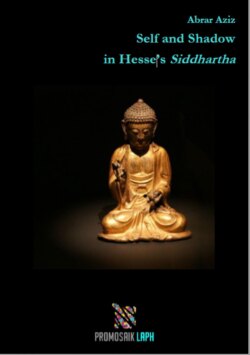Читать книгу Self and Shadow in Hesse's Siddhartha - Abrar Aziz - Страница 1
ОглавлениеDedication
To Animus
Foreword
In this study, the author attempts to explicate the psychological complications regarding psychic duality of humans. With the help of various concepts, such as I-Ching Principle of China and others already known to the world, the dichotomy of two archetypes is deciphered. The author is of the opinion that the two archetypes, the Self and the Shadow, constitute the major binding forces of a human psyche. Consequently, it is through a process of integration between the two archetypes that a human psychologically achieves ‘wholeness’. By applying this theory to Siddhartha’s journey towards self-discovery, the author has skillfully concluded his viewpoint.
The book in hand is a true example of juxtaposing beautiful expression with logical argumentation. The diction, style and contents of the book do not, at any point, lead the reader astray from reading it and most of the readers, I am sure, will find this book as interesting as to finish it in just one sitting. The references made to Hesse’s biographical notes and textual allusions from his novel Siddhartha make it yet more alluring for, especially, the fan club of Bildungsroman novels and other writings related to self- actualization and individuation.
Since this is the first publication by this author in English language, I’d like to wish him all the best and hope to see more of his publications soon.
Milena Rampoldi, ProMosaik LAPH, Istanbul, May 2021
Astract
This research investigates the integration of the Self and the Shadow in Hermann Hesse’s Siddhartha.
The focus of the research is to investigate various symbols used by Hesse in Siddhartha. The archetypal analysis of these symbols makes an integral part of this work and theories governing symbols and archetypes provide a basis for the main idea of the research. Discussion, analysis, and criticism of the archetype of the shadow substantiate the statement of the research. The psychoanalytical nature of the study provides a thorough debate over how shadow is projected and how it can be integrated with the self. The study shows that this integration leads to the completeness of personality. The research is primarily of qualita-tive nature.
